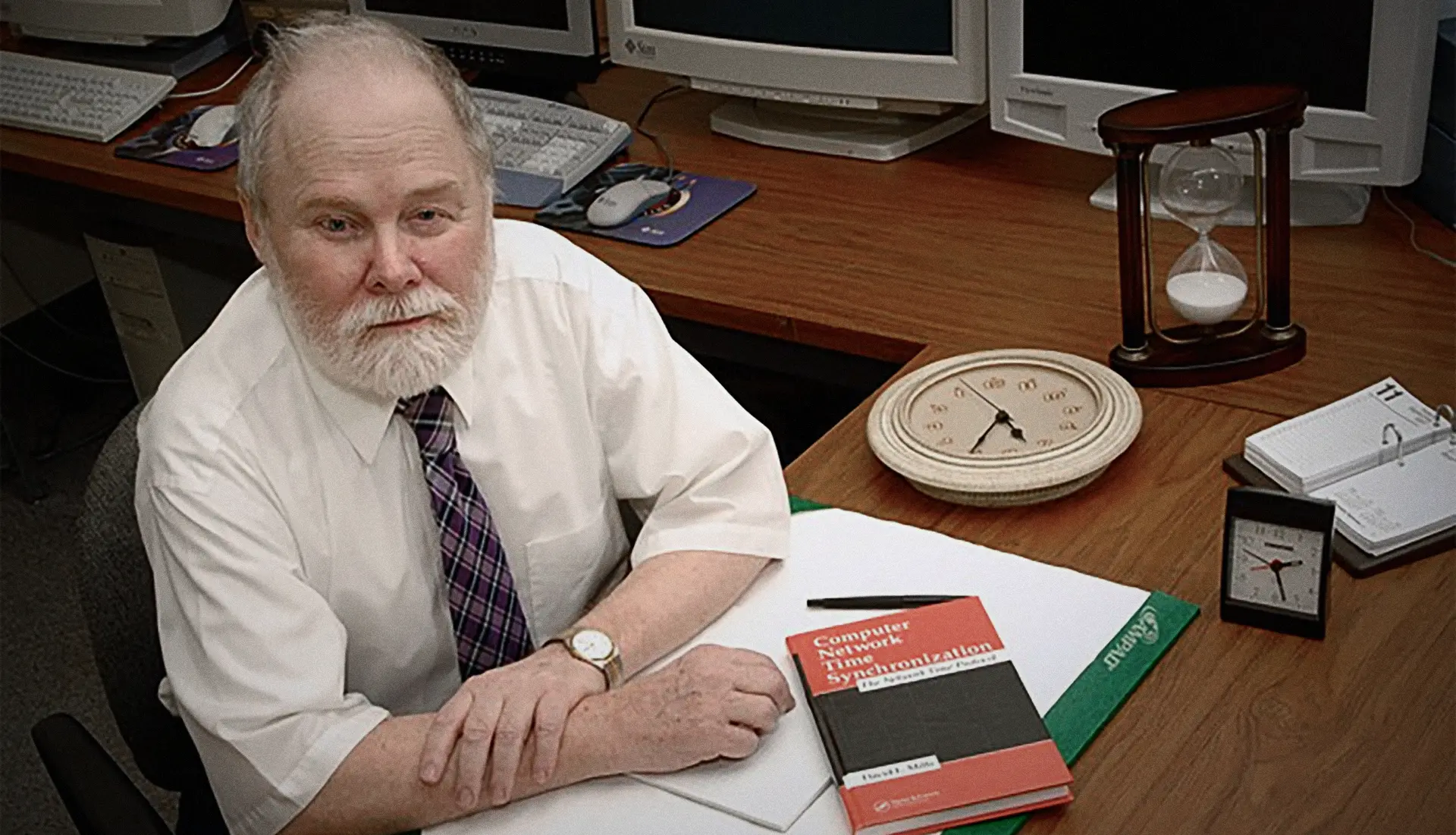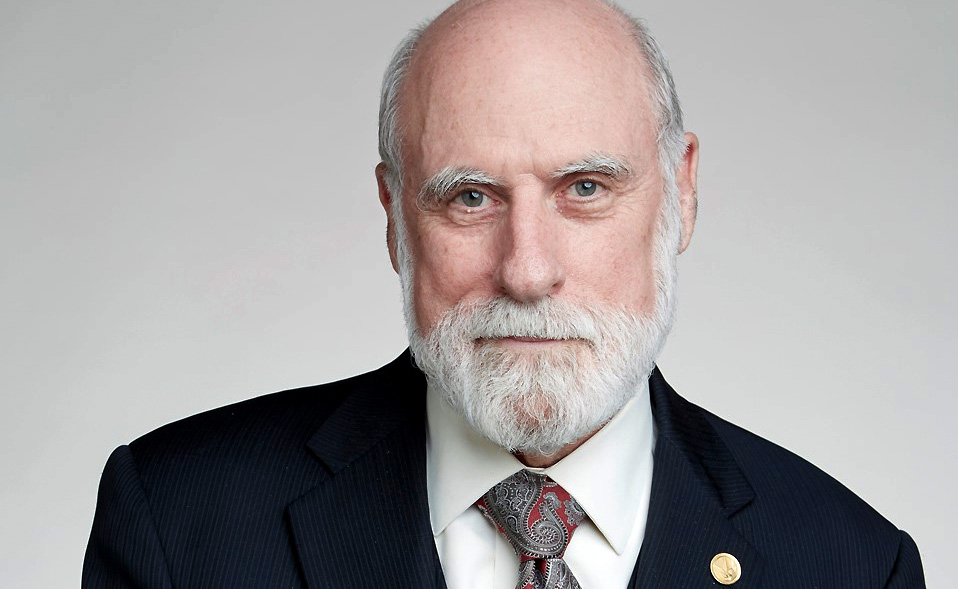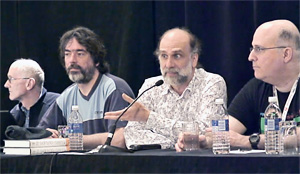
 There have been a number of occasions when the Internet Engineering Task Force (IETF) has made a principled decision upholding users' expectations of privacy in their use of IETF-standardised technologies. (Either that, or they were applying their own somewhat liberal collective bias and to the technologies they were working on!) The first major such incident that I can recall is the IETF's response to the US CALEA measures. more
There have been a number of occasions when the Internet Engineering Task Force (IETF) has made a principled decision upholding users' expectations of privacy in their use of IETF-standardised technologies. (Either that, or they were applying their own somewhat liberal collective bias and to the technologies they were working on!) The first major such incident that I can recall is the IETF's response to the US CALEA measures. more
 There have been a number of occasions when the Internet Engineering Task Force (IETF) has made a principled decision upholding users' expectations of privacy in their use of IETF-standardised technologies. (Either that, or they were applying their own somewhat liberal collective bias to the technologies they were working on!) The first major such incident that I can recall is the IETF's response to the US CALEA measures. more
There have been a number of occasions when the Internet Engineering Task Force (IETF) has made a principled decision upholding users' expectations of privacy in their use of IETF-standardised technologies. (Either that, or they were applying their own somewhat liberal collective bias to the technologies they were working on!) The first major such incident that I can recall is the IETF's response to the US CALEA measures. more
 From the creation of DNSAI Compass ("Compass"), we knew that measuring DNS Abuse1 would be difficult and that it would be beneficial to anticipate the challenges we would encounter. With more than a year of published reports, we are sharing insights into one of the obstacles we have faced. One of our core principles is transparency and we've worked hard to provide this with our methodology. more
From the creation of DNSAI Compass ("Compass"), we knew that measuring DNS Abuse1 would be difficult and that it would be beneficial to anticipate the challenges we would encounter. With more than a year of published reports, we are sharing insights into one of the obstacles we have faced. One of our core principles is transparency and we've worked hard to provide this with our methodology. more
 Project Liberty's Institute sat down with Wendy Seltzer, an advisor to the Decentralized Social Networking Protocol (DSNP). Wendy was counsel to the World Wide Web Consortium (W3C), and has served on the boards of The Tor Project, Open Source Hardware Association and ICANN. more
Project Liberty's Institute sat down with Wendy Seltzer, an advisor to the Decentralized Social Networking Protocol (DSNP). Wendy was counsel to the World Wide Web Consortium (W3C), and has served on the boards of The Tor Project, Open Source Hardware Association and ICANN. more
 Interested in learning more about routing security? How it can affect your connectivity supply chain? What are best practices for enterprises and organizations? What is the role of CSIRTs in securing routing? What are governments doing now, and planning to do in the future around routing security? more
Interested in learning more about routing security? How it can affect your connectivity supply chain? What are best practices for enterprises and organizations? What is the role of CSIRTs in securing routing? What are governments doing now, and planning to do in the future around routing security? more
 ome 50 years ago, at the Palo Alto Research Centre of that renowned photocopier company Xerox, a revolutionary approach to local digital networks was born. On the 22nd of May 1973, Bob Metcalf authored a memo that described "X-Wire," a 3Mbps common bus office network system developed at Xerox's Palo Alto Research Center (PARC). more
ome 50 years ago, at the Palo Alto Research Centre of that renowned photocopier company Xerox, a revolutionary approach to local digital networks was born. On the 22nd of May 1973, Bob Metcalf authored a memo that described "X-Wire," a 3Mbps common bus office network system developed at Xerox's Palo Alto Research Center (PARC). more
 Project Liberty's Institute sat down with Dave Clark, an early contributor to the TCP/IP protocols that built and run the Internet, and one of the expert advisors on DSNP, the Decentralized Social Networking Protocol. Dave Clark is Senior Research Scientist at MIT's Computer Science and Artificial Intelligence Laboratory (CSAIL) and Fellow of the National Academy of Engineering and the American Academy of Arts and Sciences. more
Project Liberty's Institute sat down with Dave Clark, an early contributor to the TCP/IP protocols that built and run the Internet, and one of the expert advisors on DSNP, the Decentralized Social Networking Protocol. Dave Clark is Senior Research Scientist at MIT's Computer Science and Artificial Intelligence Laboratory (CSAIL) and Fellow of the National Academy of Engineering and the American Academy of Arts and Sciences. more
 The idea for Ethernet was born fifty years ago in May 1973 when Robert Metcalf coined the word Ethernet. He had been studying ALOHAnet, developed at the University of Hawaii in 1971 and was the first public demonstration of a wireless packet data network. Metcalf used the work Ethernet as a reference to luminiferous aether, a concept postulated in the 17th century to explain how light could be transmitted through a vacuum. more
The idea for Ethernet was born fifty years ago in May 1973 when Robert Metcalf coined the word Ethernet. He had been studying ALOHAnet, developed at the University of Hawaii in 1971 and was the first public demonstration of a wireless packet data network. Metcalf used the work Ethernet as a reference to luminiferous aether, a concept postulated in the 17th century to explain how light could be transmitted through a vacuum. more
 At Verisign, we believe that continuous improvements to the safety and security of the global routing system are critical for the reliability of the internet. As such, we've recently embarked on a path to implement Resource Public Key Infrastructure (RPKI) within our technology ecosystem as a step toward building a more secure routing system. In this blog, we share our ongoing journey toward RPKI adoption and the lessons we've learned as an operator of critical internet infrastructure. more
At Verisign, we believe that continuous improvements to the safety and security of the global routing system are critical for the reliability of the internet. As such, we've recently embarked on a path to implement Resource Public Key Infrastructure (RPKI) within our technology ecosystem as a step toward building a more secure routing system. In this blog, we share our ongoing journey toward RPKI adoption and the lessons we've learned as an operator of critical internet infrastructure. more
 In a recent workshop, I attended, reflecting on the evolution of the Internet over the past 40 years, one of the takeaways for me is how we've managed to surprise ourselves in both the unanticipated successes we've encountered and in the instances of failure when technology has stubbornly resisted to be deployed despite our confident expectations to the contrary! What have we learned from these lessons about our inability to predict technology outcomes? more
In a recent workshop, I attended, reflecting on the evolution of the Internet over the past 40 years, one of the takeaways for me is how we've managed to surprise ourselves in both the unanticipated successes we've encountered and in the instances of failure when technology has stubbornly resisted to be deployed despite our confident expectations to the contrary! What have we learned from these lessons about our inability to predict technology outcomes? more
 The IETF met in November 2022 in London. Among the many sessions that were held in that meeting was a session of the Decentralised Internet Infrastructure Research Group, (DINRG). The research group's ambitions are lofty: DINRG will investigate open research issues in decentralizing infrastructure services such as trust management, identity management, name resolution, resource/asset ownership management, and resource discovery. more
The IETF met in November 2022 in London. Among the many sessions that were held in that meeting was a session of the Decentralised Internet Infrastructure Research Group, (DINRG). The research group's ambitions are lofty: DINRG will investigate open research issues in decentralizing infrastructure services such as trust management, identity management, name resolution, resource/asset ownership management, and resource discovery. more
 When I was first advocating home networking at Microsoft, we encountered a problem. The existing systems and applications had implicitly assumed they were inside a safe environment and didn't consider threats from bad actors. Early Windows systems hadn't yet provided file system with access control and other protections though there were some attempts to have separate logins to keep some settings separate. more
When I was first advocating home networking at Microsoft, we encountered a problem. The existing systems and applications had implicitly assumed they were inside a safe environment and didn't consider threats from bad actors. Early Windows systems hadn't yet provided file system with access control and other protections though there were some attempts to have separate logins to keep some settings separate. more
 Do you know someone who deserves recognition for helping build the Internet in their region or country? Or someone who made the Internet more secure through the work they've done? Or someone who made some major technical innovation that made the Internet faster or better? more
Do you know someone who deserves recognition for helping build the Internet in their region or country? Or someone who made the Internet more secure through the work they've done? Or someone who made some major technical innovation that made the Internet faster or better? more
 In 1987, CompuServe introduced GIF images, Steve Wozniak left Apple and IBM introduced the PS/2 personal computer with improved graphics and a 3.5-inch diskette drive. Behind the scenes, one more critical piece of internet infrastructure was quietly taking form to help establish the internet we know today. November of 1987 saw the establishment of the Domain Name System protocol suite as internet standards. more
In 1987, CompuServe introduced GIF images, Steve Wozniak left Apple and IBM introduced the PS/2 personal computer with improved graphics and a 3.5-inch diskette drive. Behind the scenes, one more critical piece of internet infrastructure was quietly taking form to help establish the internet we know today. November of 1987 saw the establishment of the Domain Name System protocol suite as internet standards. more
 The debate around encryption has become a hot topic in a world where communications are increasingly becoming digital. The modern encryption debate is a complex and nuanced issue, with many players from different backgrounds trying to influence the conversation. The question of balancing the need for national security with the right to privacy has been a matter of public debate for years. Only recently has the issue been framed in terms of encryption, but the discussion is certainly not new. more
The debate around encryption has become a hot topic in a world where communications are increasingly becoming digital. The modern encryption debate is a complex and nuanced issue, with many players from different backgrounds trying to influence the conversation. The question of balancing the need for national security with the right to privacy has been a matter of public debate for years. Only recently has the issue been framed in terms of encryption, but the discussion is certainly not new. more
 In Memoriam: Dave Mills (1938-2024)
In Memoriam: Dave Mills (1938-2024) Vint Cerf Receives IEEE Medal of Honor
Vint Cerf Receives IEEE Medal of Honor U.S. Department of Energy Unveils Blueprint for the Quantum Internet
U.S. Department of Energy Unveils Blueprint for the Quantum Internet “lo” and Behold
“lo” and Behold IETF Reaches Broad Consensus to Upgrade Internet Security Protocols Amid Pervasive Surveillance
IETF Reaches Broad Consensus to Upgrade Internet Security Protocols Amid Pervasive Surveillance